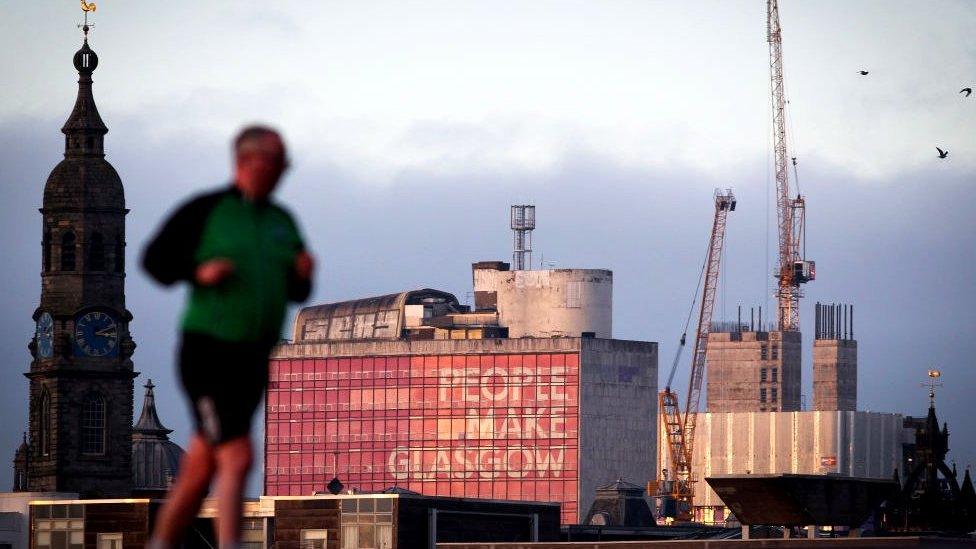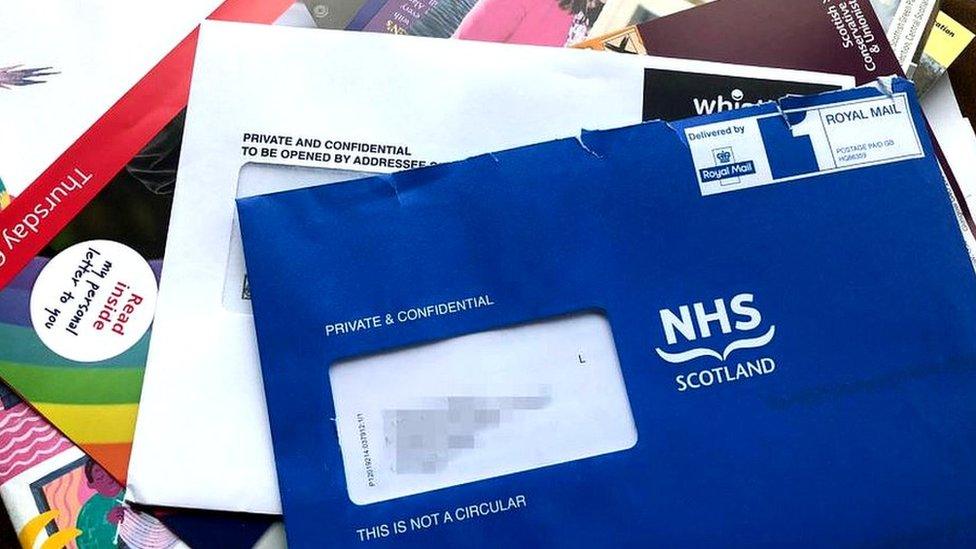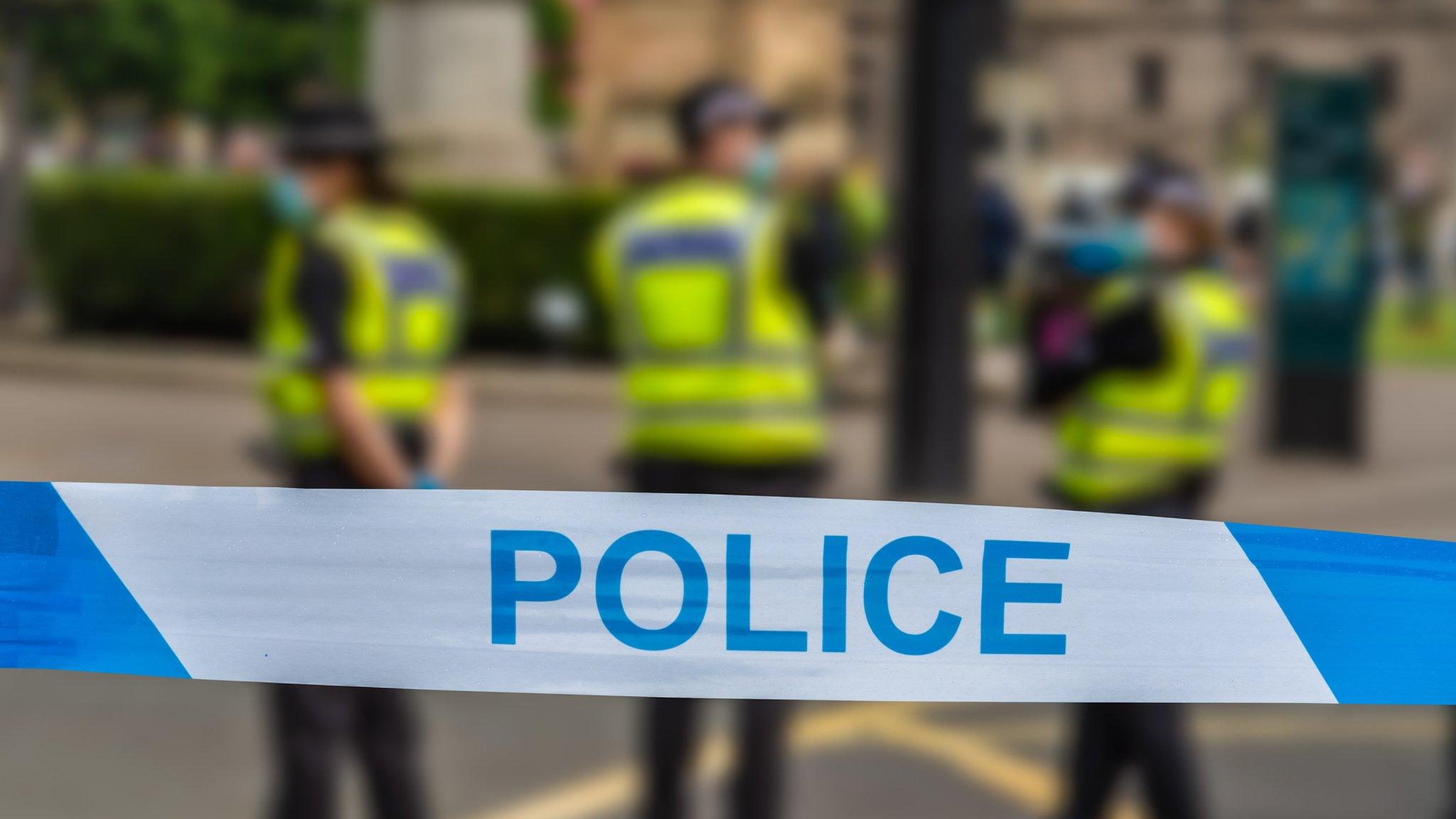'Optimism' Glasgow restrictions eased this week
- Published

The deputy first minister has said he expects Covid restrictions in Glasgow to be eased before the Euro 2020 tournament comes to the city.
John Swinney said the intention was to lift Glasgow out of level three as soon as possible, likely by the end of this week.
The city is due to host a fan zone for 6,000 fans from 11 June.
Glasgow is currently the only area of Scotland subject to tougher level three restrictions.
Mr Swinney said the extra measure appeared to be having an impact on stemming Covid rates in the city, which have been among the highest in Scotland.
Speaking on BBC Scotland's Sunday Show, Mr Swinney, who is also the cabinet secretary for Covid recovery, said the period of tougher restrictions meant the city should be prepared to move to level two within days and put the city in a better position.
He said: "We think this extra week was necessary to try to give us the advantage of suppressing the virus, but we are optimistic we will be able to do that at the end of this week.
"We think the measures we are taking - the evidence shows that they have been successful."
The fan zone at Glasgow Green is due to welcome 6,000 people from 11 June and will run for the 31 days of the tournament.
The area will be ticketed and subject to physical distancing rules. The following week, 12,000 supporters will attend Euro 2020 matches at Hampden, with Scotland set to start against the Czech Republic on 14 June.
John Swinney told The Sunday Show it was expected Glasgow would leave level three by the end of the week
Mr Swinney said the fan zones would be heavily monitored so that infection levels would not be increased by more visitors.
"Those fan zones are going to be very regulated environments," he said. "So there will be significant constraints applied about who can get in and what testing has to be undertaken to enable that to be sustained.
"Combining that with what we do within individual localities to make sure we are taking all the necessary steps to supress the virus, I am confident we can achieve that, but we can only do that if we follow the sustained approach we have taken to make sure we keep the virus under control."
Mr Swinney spoke of the "huge amount of activity" in the southside of Glasgow to target the outbreak, believed to be fuelled by the so-called Indian variant.

John Swinney said the blue envelope appointment system was not working for younger people
He said there had been a massive effort on the ground by health and home care staff and there were encouraging signs this was working.
But he admitted that the Scottish government had to adjust its vaccination strategy to target younger people after Glasgow's largest vaccination centre, the SSE Hydro, saw appointment no-shows of up to 83% last weekend.
'Blue envelopes not working'
He said: "What we are finding is the letter distribution programme - the blue envelopes - has worked very successfully for the older part of the population, but when it comes to the younger groups where there is more turnover in accommodation and GP registrations, that model is not working so successfully.
"That is why we have opened up the registration opportunity for 18-29 year-olds. And we have got over 200,000 registrations already for the vaccination programme.
"So we have accepted that the letter distribution programme is not working so well for the younger population."


Related topics
- Published30 May 2021
